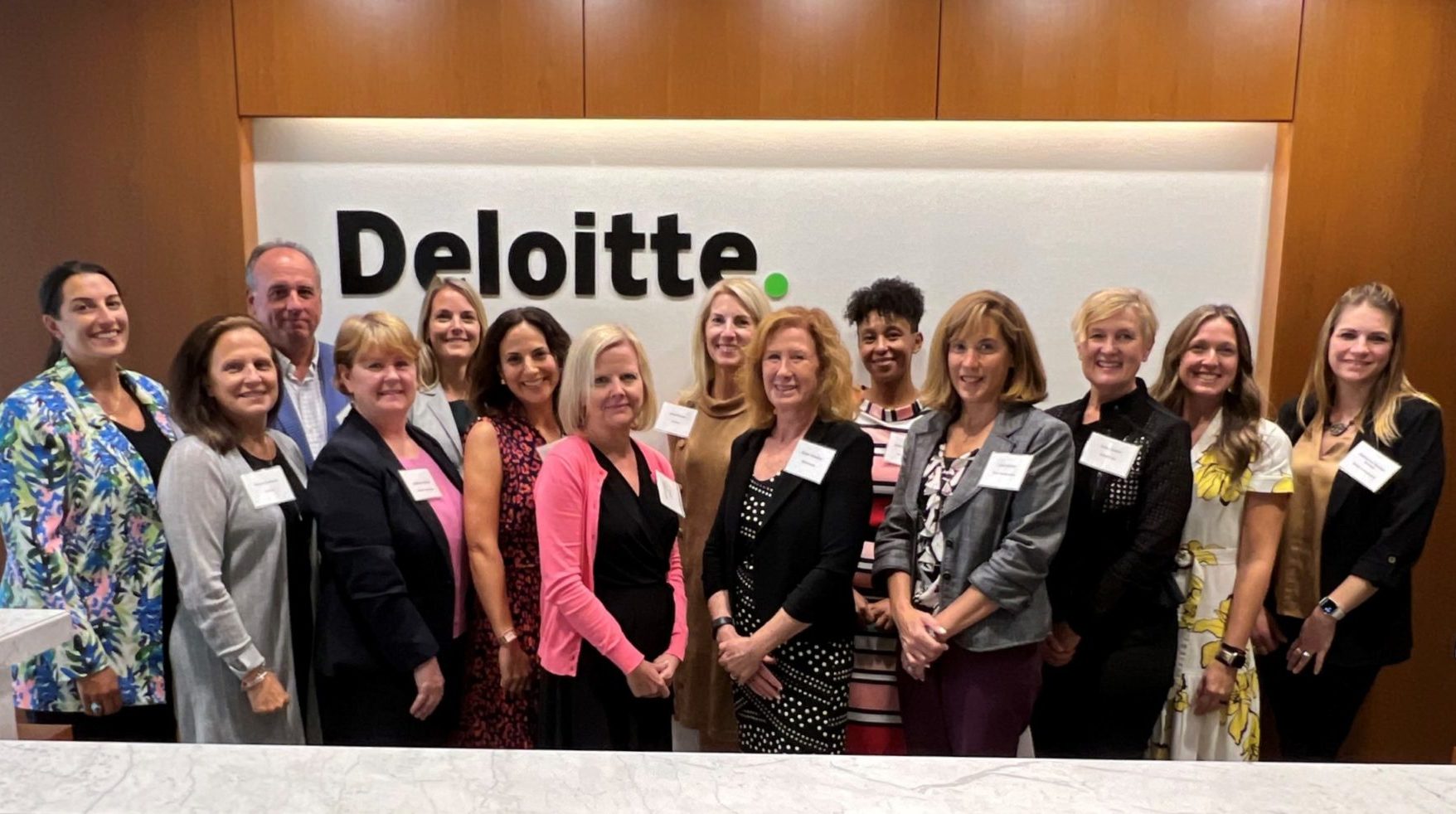Women in Bio-Connecticut launches pilot program to increase representation of women in Connecticut boardrooms
3 members of the first cohort reflect on the newly-founded 3.8 Initiative

Courtesy of Kristin Rose Jutras
Women in Bio-Connecticut is piloting a program designed to increase women’s representation in Connecticut boardrooms in partnership with the finance company Deloitte.
The 3.8 Initiative, named after March 8 — International Women’s Day — is a 10-month-long program seeking to address gender disparities in Connecticut-based business leadership. The program offers participants 3 key pillars to progress: curriculum on duties of board members to fill in individual gaps, a supportive network of women leaders in the local life science and health tech community and facilitation of board seat placements for cohort graduates by working with local companies and incubators.
“It was a two-sided piece,” explained Erika Smith, member of the Executive Women in Bio, or eWIB, steering committee. “We can solve [the] problem that companies and organizations have and also help to raise awareness of the talent that we have here in the state [of Connecticut].”
Established in 2021, WIB-CT is the newest of the 14 chapters of Women in Bio, a national organization with the goal of supporting women in life sciences.
It all started when Erika Smith and Susan Sobolov, chapter chair of WIB-CT, witnessed blooming prospects in the discipline of biological sciences in Connecticut. She thought it would be a good idea to not only help women with career goals but also help companies with needs for board positions.
Smith and Sobolov went on a listening tour around the state, speaking to Connecticut Innovations, Elm Streets Ventures and Canaan Ventures — companies that have potential needs for executives.
“We talked to companies [about] how they identified board members, we talked to executive women to find out their interest level, then figured out and came up with the three ideas that were key pillars to the program,” Smith explained.
Seeing the alignment of goals, Smith and Sobolov reached out to the national WIB program and the 3.8 Initiative in CT was founded.
The initiative has a partnership with Deloitte’s National Board Ready Program. The Deloitte Center for Board Effectiveness Board Ready Program will share insights with the cohort on how to position themselves for board opportunities, as well as the duties and responsibilities of board members, and participants will take part in workshops and discussions on relevant topics.
“We are very fortunate [that] one of our executive WIB members — Courtney Connors, [who] is with the Deloitte organization based in Hartford and part of our chapter — made us aware of a wonderful program that Deloitte has,” Sobolov said. “And through that connection, our cohort was able to join Deloitte’s Board Ready Program.”
Deloitte already has a national curriculum in place, which has some overlap with that which the 3.8 Initiative is hoping to cover. Furthermore, the Deloitte Board Ready Program has a database of previous participants, which facilitates a local network among companies looking for board members and women in executive positions.
“This is a really great opportunity to partner for the first time,” Smith said. “It’s really fantastic. I believe for Deloitte, this is the first time that it’s been gender specific, and industry specific. We’re forging new ground.”
The program selection process started last spring, with applicants filling out the application form, sharing about their interests, leadership and board experience, as well as what they would bring to the program. The cohort was selected by April 2022 and the first session took place in June 2022, with monthly meetings held ever since. Anjelica Gonzalez, associate professor of biomedical engineering at Yale, is a member of the first cohort.
So far, members of the cohort have attended sessions and meetings with recruiters to gain a more in-depth understanding of what companies are looking for when recruiting boards. It is a mix of curriculum, networking and building up both the network within the life sciences community, as well as the network within Connecticut to raise the awareness of the cohort.
Kat Kayser-Bricker, co-chair executive of WIB-CT and a member of the first cohort, expressed her gratitude for the role the 3.8 Initiative played in preparing her for board positions.
“I accomplished the goals of understanding [the difference between] your role on the board versus your role as an executive as well as understanding the basics of corporate governance,” Kayser-Bricker explained.
From an educational perspective, Kayser-Bricker felt she had the tools to step onto a board, but from a more practical perspective, she now understood the steps needed to take in order to get her first board position. She felt more familiar and well-prepared with the application process. Specifically, she had an opportunity to be acquainted with different components of an interview, refine her resume as a board role and tell the difference between how you present yourself as a potential board member versus as an employee.
Morag Grassie, associate director of the Blavatnik Fund for Innovation at Yale Ventures, highly commended the program.
“The 3.8 Initiative Program of Women in Bio-Connecticut is a wonderful opportunity for women in the biotech community to gain knowledge and experience of board participation and leadership,” Grassie said. “This program offers participants great training, networking and exposure to the biotech startup environment. As a founder of Yale’s amplifyHERscience, this is the sort of opportunity that I would encourage our women and underrepresented faculty to explore and seriously consider as another component to building their tool kit to help the launch of successful biotech startups.”
Women in Bio was founded in 2002.







